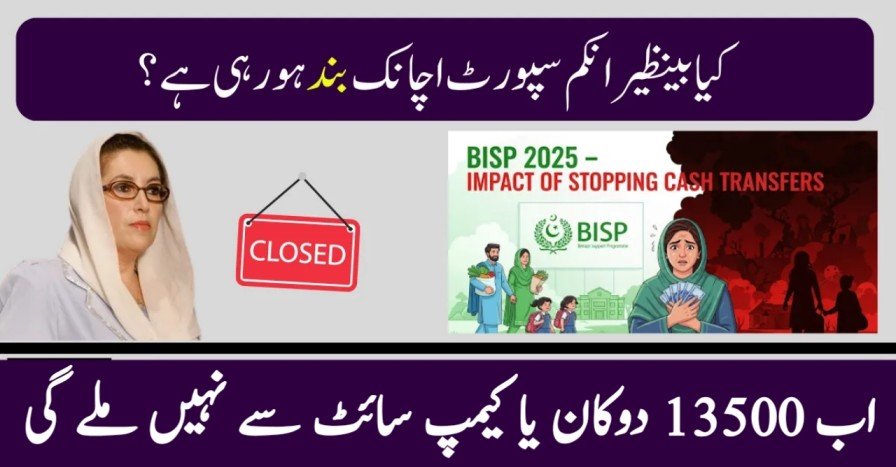The Benazir Income Support Program (BISP) has been one of Pakistan’s largest social protection initiatives since its launch in 2008. It has helped millions of low-income families, reduced poverty, and empowered women by directly transferring financial aid to them.
However, in 2025, the sudden discontinuation of BISP cash transfers has raised serious concerns. Experts warn that stopping these payments could not only increase poverty but also trigger a rise in intimate partner violence (IPV) and destabilize households.

Why BISP is Vital
BISP has gone beyond poverty reduction and directly improved family and social life. Its importance lies in:
- Empowerment of Women: Direct payments to women give them control over household spending.
- Reduced Financial Stress: Regular support lowers domestic tensions, reducing the chances of violence.
- Improved Family Relations: Families with financial stability experience more harmony and fewer conflicts.
- Social Respect: Women with financial independence enjoy greater respect in homes and communities.
By putting women at the center of financial decisions, BISP has played a crucial role in reducing IPV across Pakistan.
BISP’s Role in Pakistan’s Social Fabric
The program is considered one of the most successful welfare models in South Asia because of its:
- Targeted Approach: Payments go directly to women instead of male heads of households.
- Unconditional Transfers: Families can use funds for food, education, or healthcare based on their needs.
- Wide Coverage: Millions of households across all provinces benefit from BISP support.
Beyond financial aid, it has contributed to better education, improved healthcare, and stronger community harmony.
Risks of Sudden Discontinuation in 2025
Ending BISP cash transfers suddenly could have serious negative consequences, such as:
- Increased Financial Pressure: Families may struggle to afford food, shelter, and healthcare.
- Higher IPV Rates: Economic stress is one of the leading causes of domestic conflict and violence.
- Loss of Women’s Empowerment: Women could lose financial control and bargaining power at home.
- Household Strain: Limited resources may lead to frustration, arguments, and instability.
Why Stopping Payments Could Increase IPV
Experts highlight several reasons why discontinuing BISP might lead to a rise in intimate partner violence:
- Economic Stress: Without financial aid, poverty-driven tensions can escalate into violence.
- Shift in Power: Women may lose independence and influence in household decisions.
- Psychological Strain: Uncertainty over survival creates emotional distress in families.
- Loss of Social Status: Women respected for handling finances may face reduced standing in their communities.
Global Evidence on Cash Transfers and IPV
The link between cash transfers and reduced IPV is supported worldwide:
- Bangladesh: Programs tied to nutrition lowered IPV rates.
- Latin America: Conditional transfers for education reduced domestic conflicts.
- Sub-Saharan Africa: Direct transfers to women decreased violence in households.
These examples prove that welfare schemes like BISP are essential not only for poverty reduction but also for social stability.
Strategies to Minimize Harm if Payments End
If BISP payments cannot continue, experts recommend:
- Phased Withdrawal: Reduce payments gradually instead of cutting them off suddenly.
- Savings Support: Encourage families to save during active phases of the program.
- Skills Training: Provide vocational and income-generating training.
- Social Services: Counseling, healthcare, and family support programs to ease the transition.
- Advance Notice: Inform families early to help them prepare financially.
Conclusion
The discontinuation of BISP cash transfers in 2025 highlights how critical welfare programs are in ensuring both economic security and women’s empowerment. Without them, Pakistan risks rising poverty, weakened households, and increased intimate partner violence.
A phased strategy and alternative support systems must be considered to safeguard families and continue the progress made over the past decade.









